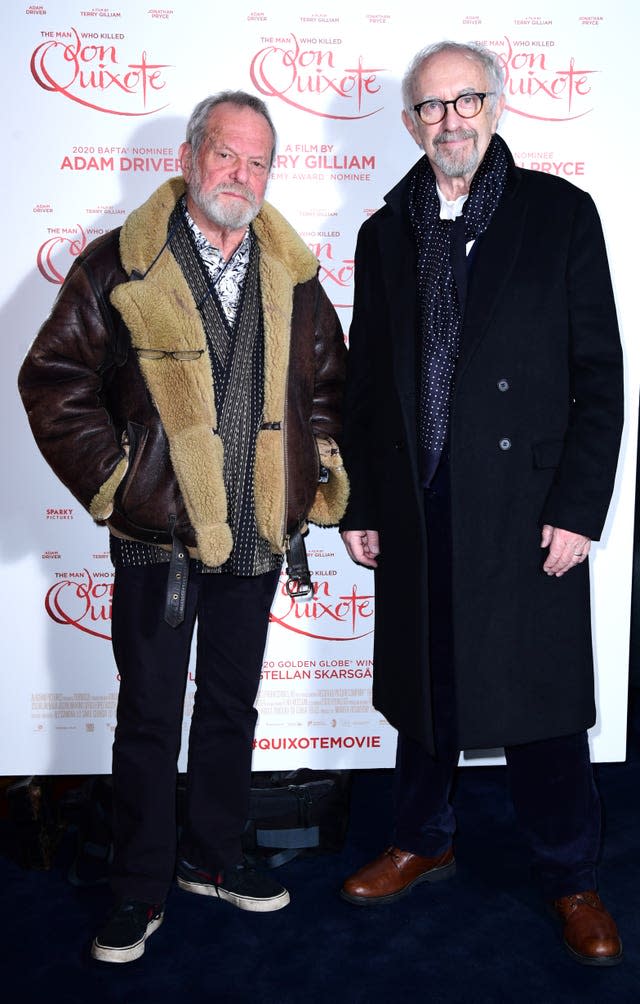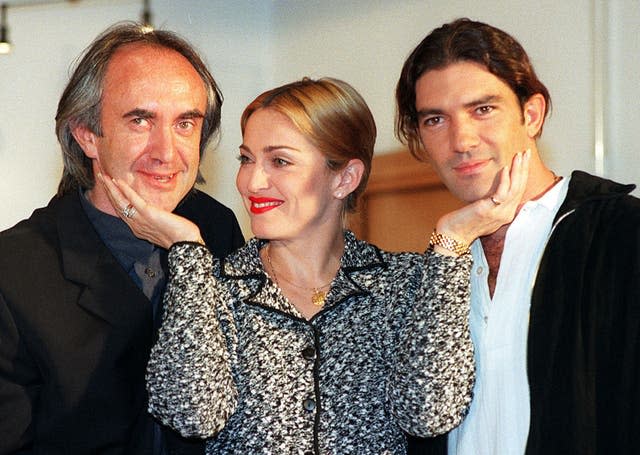Game Of Thrones and The Two Popes star Jonathan Pryce given knighthood
Jonathan Pryce said the arts show “the importance of debate and tolerance” as he was given a knighthood.
The actor, who was nominated for an Oscar for his turn as Pope Francis, and acclaimed for his role as the High Sparrow in Game Of Thrones, has been recognised for services to drama and charity in the Queen’s Birthday Honours list.
Born in Flintshire, Wales, Pryce, 74, studied at the Royal Academy of Dramatic Art, before embarking on a career on the stage in the 1970s.

He won an Olivier and two Tony awards before his breakout role on screen in Terry Gilliam’s black comedy Brazil in 1985.
He starred opposite Alec Baldwin and Al Pacino as James Lingk in Glengarry Glen Ross before landing the role of Juan Peron opposite Madonna in 1996’s Evita.
He played sinister media mogul Elliot Carver opposite Pierce Brosnan’s 007 in the James Bond film Tomorrow Never Dies and also appeared in the Pirates Of The Caribbean films as Governor Weatherby Swann.
In 2015 he played the scheming Cardinal Wolsey in the BBC’s adaptation of Hilary Mantel’s novel Wolf Hall, the same year he joined the cast of the big-budget fantasy series Game Of Thrones, as the ruthless and fanatical leader of the religious sect known as the Sparrows.

He earned his first Oscar nomination at the age of 72 in 2020 when he was nominated for best actor for his turn as Pope Francis in The Two Popes.
He was cast in the role after he had been compared to Cardinal Jorge Bergoglio when the Argentine religious leader ascended to the papacy to become Pope Francis.
Last year it was announced that he will take over from Tobias Menzies as the Duke of Edinburgh in the final two seasons of Netflix’s lavish royal drama The Crown.
He will star opposite Imelda Staunton as the Queen.
Pryce said in a statement: “That the UK continues to honour those that work in the arts acknowledges the great contribution artists make to the way we live our lives.
“When I began work at the Liverpool Everyman under Alan Dosser in 1972, I saw theatre as an implement of change – to entertain and to inform.
“The arts remind people to be kinder, more understanding, questioning and to be more empathetic.
“It shows people the importance of debate and tolerance and these last few divisive years have shown the need for that more than ever.
“After almost 50 years as an actor I am proud to think that the work and ideals that I have shared with my friends and colleagues is being honoured in this way.”

 Yahoo Movies
Yahoo Movies 
